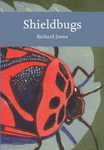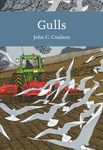![How to Grow a Human How to Grow a Human]()
Click to have a closer look
About this book
Customer reviews
Biography
Related titles
About this book
A cutting-edge examination of what it means to be human and to have a 'self' in the face of new scientific developments in genetic editing, cloning and neural downloading. After seeing his own cells used to grow clumps of new neurons essentially mini-brains Philip Ball begins to examine the concepts of identity and consciousness. Delving into humanity's deep evolutionary past to look at how complex creatures like us emerged from single-celled life, he offers a new perspective on how humans think about ourselves.
In an age when we are increasingly encouraged to regard the 'self' as an abstract sequence of genetic information, or as a pattern of neural activity that might be 'downloaded' to a computer, he return us to the body to flesh and blood and anchors a conception of personhood in this unique and ephemeral mortal coil. How to Build a Human brings us back to ourselves but in doing so, it challenges old preconceptions and values. It asks us to rethink how we exist in the world.
Customer Reviews
Biography
Philip Ball is widely recognised as a leading communicator of the relationships between science and the wider culture. For example, his book The Music Instinct (2010), a survey of the cognitive understanding of music, became a bestseller and was longlisted for the Samuel Johnson Prize for nonfiction. Philip's most recent book, The Water Kingdom (2016), was selected as a Book of the Year by the Times and the Economist. He received the Editorial Intelligence Comment Award for Best Science Commentator in 2015 and again in 2017. Philip writes regularly on all areas of science in both popular and technical outlets. For many years he was an editor for Nature, to which he still contributes regularly. He has featured on many national and international radio and television programmes, and he is a presenter of the science history series Science Stories on BBC Radio 4.
Popular Science
By: Philip Ball(Author)
272 pages, colour & b/w photos, colour illustrations, colour tables
"This is a deeply engaging crash course. Ball's description of cellular organelles and their functions, in particular, is an impressive feat. And his sense of wonder at biological processes is palpable: passages on the intricacies of cell plasticity had me (with my doctorate in molecular biology) exclaiming, "That is incredible!""
– Nature
'Philip Ball weaves a compelling story of bodily creation [...] Highly readable and impeccably informed by research, How to Grow a Human revels in scientific possibility and confronts the social and ethical implications, while intelligently acknowledging what is as yet unknown"
– The Lancet
"[This] winding romp through advances in cell biology pushes readers to ponder the boundaries of life [...] The book offers a provocative, meandering take on the progression of groundbreaking biotechnological capabilities [...] absorbing ambitious and expansive [...] Ball's look at the state of human-facing cutting edge bioscience is a thought-provoking read"
– Science
"Griffiths is a superb text with well-qualified authors, earnest academic rigor (appropriate for college students), and content that is well supported by end of chapter problems. I like that the authors have a clear focus in each chapter and use examples to support their pedagogical goals – the "cool" examples are used conservatively in direct support of the goals for each chapter."
– Jay Brewster, Pepperdine University
"Thorough, well-written, it has always been a solid text."
– Matthew White, Ohio University
"I always feel that teaching genetics is exciting because nearly every chapter has a Nobel-winning experiment. The writing style of this chapter [13] certainly captures that excitement."
– Henry Chang, Purdue University
"Griffiths is a classic text that does a good job overall. For the most part it is very clear in its explanations. The organization is fairly traditional, with classic Mendelian genetics presented first."
– Jennifer Powell, Gettysburg College


































